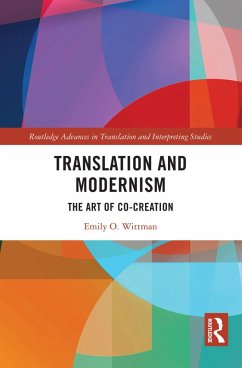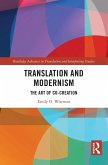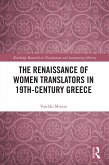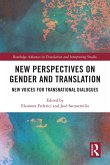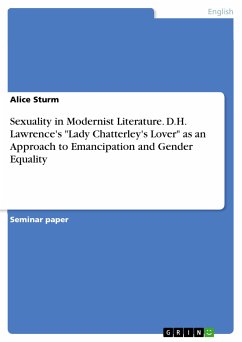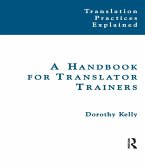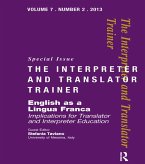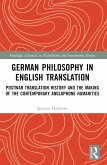Wittman builds on existing work at the intersection of the two fields to offer a more dynamic, nuanced, and wider lens on translation and modernism. The book draws on scholarship from descriptive translation studies, polysystems theory, and literary translation to explore modernist translators' appropriation of source texts and their continuous recalibrations of equivalence between source text and translation. Chapters focus on translation projects from a range of writers, including Beckett, Garnett, Lawrence, Mansfield, and Rhys, with a particular spotlight on how women's translations and women translators' innovations were judged more critically than those of their male counterparts. Taken together, the volume puts forth a fresh perspective on translation and modernism and of the role of the modernist translator as co-creator in the translation process.
This book will be of particular interest to scholars in translation studies, modernism, reception theory, and gender studies.
Dieser Download kann aus rechtlichen Gründen nur mit Rechnungsadresse in A, B, BG, CY, CZ, D, DK, EW, E, FIN, F, GR, HR, H, IRL, I, LT, L, LR, M, NL, PL, P, R, S, SLO, SK ausgeliefert werden.
"In a way the core genre of modernist literature has always been translation, yet somehow this book is bristling with new discoveries. It bobs and weaves around the predictable points of reference and gives us a compelling new matrix of modernist translators: the D.H. Lawrence who drilled through German to get to Egyptian lyric laborers, the Katherine Mansfield who remakes rather than raids the cabinet of Dr. Chekhov, the Jean Rhys who learned the language of the streets not just by living it but by translating it. These are not mere elaborations stitched to the edge of the old canon, but bold bright diagonals cutting through it.
The experimental verve of the modernist translators (mainly women) is not just the subject of this book, it is the book's delightful m.o. Indeed, it is the most fitting live-action testimony to her subject, that Wittman herself writes with a learned zest, a witty brio that harmonizes with the unforgettable stylists we encounter in this dashing book. It takes an adroit and practiced scholar to recover not just the under-studied and outcast, but to uncover the systematic patterns behind individual cases of neglect and misdirection. Wittman can do that; she knows where the co-creators of modernist art have been buried; she has found for us a rich trove of beautiful infidels, wanton rovers across language and genre. Her argument 'against fidelity' is a compelling and complete case for a new method and theory of translation studies." - Jed Esty, University of Pennsylvania, and author of The Future of Decline

